Posted on 12/18/2021
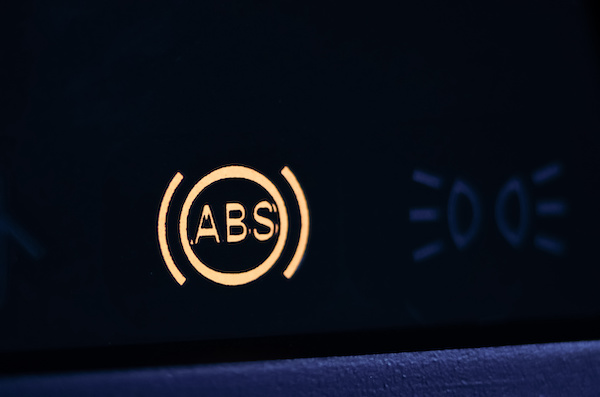
As of 2013, all cars must be equipped with an anti-lock brake system or ABS. This secondary brake system helps you steer your vehicle in emergencies and slippery conditions by helping you gain traction of your tires. It essentially prevents the wheels from locking up and skidding. And by preventing a skid will stop your tires from wearing unevenly. If you seldom drive in snow or rain, you won't know what to foresee when the ABS is activated. When ABS kicks in, your car may vibrate and groan. However, it is all worth it as it helps decrease stopping distances on slippery and dry roads. Your car has various sensors on its wheels to recognize when your car's tires are on the edge of locking up. Once these sensors make the recognition, they quickly and repeatedly apply the brakes to keep your tires from skidding. Furthermore, ABS auto-adjusts the brake fluid pressure in each wheel to maintain excellent brake performance. However, the electronic con ... read more
Posted on 11/11/2021
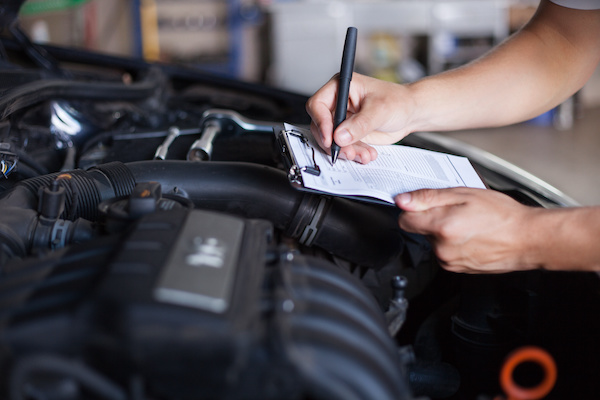
Every automobile in Pennsylvania must undergo a vehicle safety and emissions inspection (rules may vary by county). These examinations are required by legislation to ensure that all modes of transportation on the road are safe to operate. These inspections serve to keep you and other motorists safe from dangerous and fatal roadway disasters. What is a State Inspection? A state inspection is an auto service that has to be done by a licensed inspector to allow your vehicle for legal operation on Pennsylvania roadways. The inspector will also review your car owner's documentation, exterior, interior, and all its functional systems. They will ensure that all parts and systems function perfectly and are not in severely declined condition. Why Do I Need It? Pennsylvania started this program to meet localized air quality goals and focus on its residents' safety. You're required to get a state safety inspection annually or every year by law. As proof that you passed your ... read more
Posted on 10/5/2021
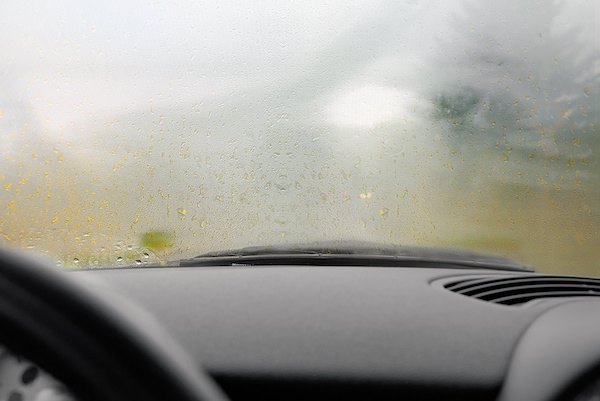
Depending on the temperature outside, there are multiple methods on how to clear your foggy windshield. In the chilly, cooler weather, you're likely to experience the interior of your glass surfaces on your car fogging up. The condensation occurs due to the difference in temperature and humidity between the inside and outside of your vehicle. When you need the windows to be cleared up right away, the fastest way to do so is to lower the inside temperature so that the moisture stops building up. Method #1 - Turn the defrost vent on WITHOUT heat, or opening the windows in cold weather is the fastest way to get rid of hazy windows. While it is effective, it isn't very comfortable for you or other passengers in the car. This method is recommended for when you need it cleared FAST. It's sometimes better to use the method below if it is uncomfortably cold outside. Method #2 - You can warm the inside of the car and blow warm air across the windshield using the defrost se ... read more
Posted on 9/17/2021

The best season of the year is here: Fall. Whenever you start to see the leaves change colors and feel the weather cool down, you can't help but feel a little giddy and want to explore. Just because summer is over doesn't mean the fun trips on the road have to stop. There are numerous fun activities you can do this autumn with your loved ones. All you need to do is hop in your vehicle and make it happen. Here is our list of fun activity ideas that you can do this fall! Go To a Sunflower Farm In case you didn't know, sunflowers are in full bloom during the autumn. Take advantage of this opportunity and take your friends or family to the closest sunflower farm. The sight of sunflower fields stretching for miles is a beautiful sight to see and will definitely make some Instagram-worthy pictures. Go to a Pumpkin Farm (& Carve a Pumpkin) In addition to sunflowers, you can also take your kids to a nearby pumpkin farm. If this activity doesn't make you ... read more
Posted on 8/6/2021
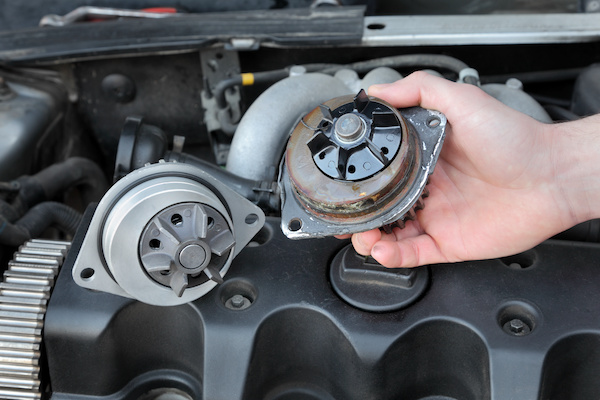
Your water pump is located under your vehicle's hood, and it is responsible for keeping your car running efficiently. Your car engine comprises several components that are constantly moving and working to generate a staggering amount of friction and heat. To be specific, the water pump plays a vital role in your vehicle's cooling system by moving coolant from the radiator and transporting it to the engine to keep its components at an optimum temperature. When you have a failing water pump, your engine is at a high risk of overheating. An overheating engine can cause damage to the cylinder heads, gaskets, and pistons. In other words, if you neglect the water pump, it may lead to catastrophic engine damage. A faulty water pump will usually exhibit the following symptoms: Leaking Coolant Your car's water pump comprises seals and gadgets to facilitate a constant flow of the coolant from the radiator to the engine block. Over time, these parts can loosen ... read more
Posted on 7/4/2021

If you have a teen in the house, you know that a day will come where they will have to practice their driving on the highway. The first time can be scary, which is why it's common for new drivers only to drive local until they gain enough experience to go on the freeway. Being prepared can help a beginner driver make a safe transition from local roads to the highway. We've compiled several helpful driving tips that a teen or new drivers should follow before hitting the highway: Plan accordingly on when to start driving on the highway. If you want to venture out onto the interstate, you want to pick the right time and place to do it. Consider starting on one that is not too busy with ample lanes. Also, try not to go during rush hour traffic. You also want to ease into it by driving on a bright, clear day without rain, snow, or fog that could impair your vision. Start off driving in the right lane. New drivers should start by only riding in the right lane since ... read more
Posted on 6/8/2021
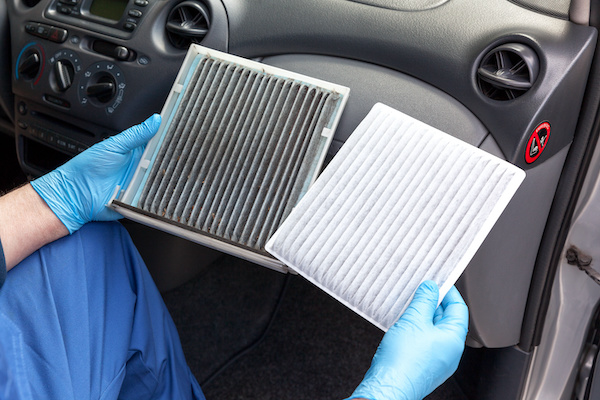
Air quality is a global issue and affects us wherever we are, even in Stockertown, PA. Many drivers are now becoming aware of how air pollution negatively affects our health. But what about the air inside your vehicle? Does it matter? Your cabin air filter will unquestionably affect the heat and air conditioning in your car. In fact, the most common indication that you need to replace your air filter is a moldy, foul smell whenever you turn on the unit in your car. Yuck! Inhaling that mold will not be suitable for your lungs in the long run. A filthy air filter can also restrict the power yielded by your engine as it takes more effort to run the blower motor. The real question is: HOW OFTEN SHOULD YOU GET YOUR VEHICLE’S AIR FILTERS REPLACED? Most of the time, manufacturers will recommend changing your air filter every 10,000 to 25,000 miles. It will also depend on external factors such as car make, usage, etc. You can also ... read more
Posted on 5/17/2021
.jpeg)
If you have not yet heard that you should follow a strict maintenance schedule for your vehicle, you may not yet be an automobile owner. There is a debate going on between manufacturers of cars and those who repair them about the best type of schedule to keep when maintaining your vehicle. Here are some tips for the best practices for taking care of your vehicle. Inspecting and Maintaining the Tires It should come as no surprise that tires with proper inflation most of the time will be safer for you to be on the road. You must first obtain the recommended tire pressure for the tires on your car and check it regularly. Most newer vehicles will have a Tire Pressure Monitoring System (TPMS) built into them. If you do not have one of these, you will need to get the classic tire pressure gauge. These can be purchased at any local auto parts store, and are relatively easy to use. If the gauge says there is too much air, you will need to deflate the tires. Contrary, if the tires do not h ... read more
Posted on 4/19/2021
.jpeg)
A radiator is a heat exchanger that helps to cool internal combustion engines (ICE) in automobiles. More importantly, you may find this crucial component in motorcycles, locomotive engines, and piston-engine aircraft. Currently, most modern automobiles are fitted with aluminum radiators. What is the Working Principle of the Radiator? When an ICE is operating, it emits a lot of heat, especially during the power stroke. To mitigate the problem of the engine overheating, a coolant is pumped by your car through the engine block, receives the heat, and carries it away. The superheated coolant moves through your radiator, which blows air across the cooling fluid. A heat exchange operation occurs, and the heat from the coolant is transferred to the air outside of the car. The radiator itself is designed in such a way that it has metal fins, which allow the transfer of heat to the air outside to occur fast. Notably, depending on the cooling needs of the equipment in questi ... read more
Posted on 3/12/2021
.jpeg)
There are certain smells that you have come to expect from your vehicle. From your teenager's socks to rotten fruit that you forgot about; those smells can be dealt with. It is when you start to smell something unusual in your car that you should be concerned about. Such smells could very well be an indication that there is a problem looming that you need to have taken care of. Take Note of These Smells The following smells are not common and should give you pause to take notice and get your car checked out by a professional technician. You Start to Smell Gasoline While some gas smells are the result of a recent fill-up, they should not last long. If it has been quite some time since you stopped to fill the car up with gas, there could be an issue if you start to smell fumes. You could have a leaky fuel tank or injection system. This should be taken care of as soon as possible. You Can Smell the Exhaust from Inside Your Car You should never smell the exhaust inside your car ... read more